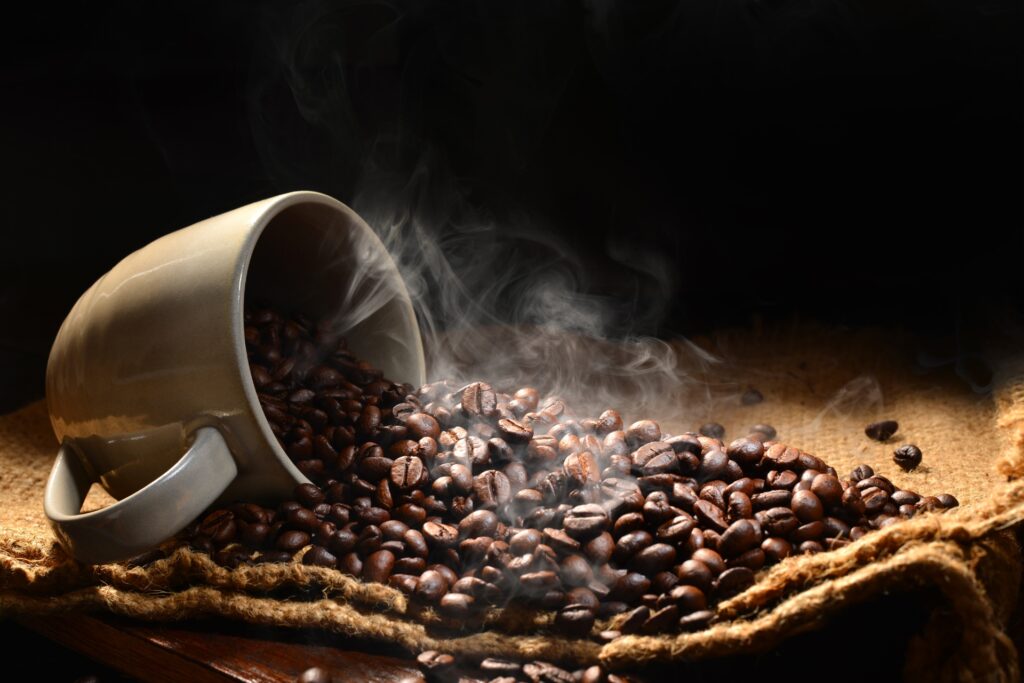Coffee is one of the world’s most popular beverages. In the UK, we drink approximately 95 million cups of coffee per day, and it is a lucrative multi-billion pound business.
However, a closer look at the supply chain shows coffee is a complex and often unfair relationship with the person behind every bean – the farmer. Fairtrade drives a fairer, more sustainable way of trading.
Here, we dispel some of the misconceptions about Fairtrade coffee.
1. Fairtrade coffee is not more expensive
Sustainability doesn’t have to come at a price. You can find a variety of Fairtrade coffee for sale in the UK, and it won’t cost the earth.
Many major supermarkets now have Fairtrade own-label coffee in their value ranges, including M&S, Waitrose and Co-op, so that Fairtrade farmers can enjoy the benefits of Fairtrade certification.
All the coffee at Greggs is Fairtrade, and it’s the cheapest place to buy takeaway Fairtrade coffee on the high street. With many supermarkets and brands selling Fairtrade coffee, the sums don’t add up for those saying it’s more expensive, and in many cases, it isn’t.
We’ve been working with our retail partners to offer Fairtrade products at accessible prices so that you can enjoy a Fairtrade coffee wherever you shop.
2. Not just anyone can use the Fairtrade logo on their coffee and call it ethical
The FAIRTRADE Mark is a registered certification label for coffee sourced from Fairtrade producers in low-income countries, such as Kenya and Nicaragua.
Coffee that displays the Mark must meet Fairtrade Standards, which incorporate a holistic blend of social, economic and environmental criteria.
If a company wants to sell Fairtrade certified coffee (and have the FAIRTRADE Mark displayed on its packaging), they first have to make sure that the coffee meets all of the Fairtrade Standards.
3. You can be confident that Fairtrade coffee is exactly what we say it is
The FAIRTRADE Mark (or logo) on a product means that the Fairtrade ingredients in that product have been independently verified by FLOCERT, an independent certifier accredited by the International Organisation for Standardization (ISO).
Independent certifiers audit producers, traders and companies to check compliance with our economic, social and environmental standards, including that farmers and workers receive the Fairtrade Minimum Price and Premium.
So, when it comes to Fairtrade products, including coffee, when we say that buying it is supporting farmers to get a better deal, you don’t just have to take our word for it.
Fairtrade certification system is rigorous, independent, and in line with best-in-class certification practice.
4. Fairtrade supports coffee farmers in improving their products
On top of the price they get for their coffee, Fairtrade farmers also earn a ‘Fairtrade Premium’ to invest in projects that will benefit their business or community.
Fairtrade coffee farmers invest at least 25 per cent of the Premium into initiatives to improve quality and productivity, which can help to increase farmers’ incomes.
Over the years, many Fairtrade coffee producers have won Cup of Excellence awards and several Fairtrade coffees on sale in the UK have also won various taste awards.
In total, Fairtrade coffees have won over 28 Great Taste Awards – which is a testament to the quality achieved.
5. Gender equality and Fairtrade coffee
Studies show that while women’s participation in farming has increased over time, women have less access to resources such as land, inputs, information, credit and training. Fairtrade Standards are designed to increase female participation and support more women and girls to access the benefits of Fairtrade.
Producer networks are rolling out women’s schools of leadership for farmers, enabling women to deepen their business, negotiation and finance skills.
Many of the women go on to take on leadership and committee positions within their co-operatives and communities.
The Fairtrade Standards encompass requirements on gender justice, including no discrimination based on gender or marital status, zero tolerance of abusive or exploitative behaviour, developing a gender policy, and programmes to support disadvantaged and minority groups.
6. The Fairtrade coffee farmers are learning to live with the climate crisis
Around 125 million people worldwide depend on the coffee we drink for their livelihoods. And yet, every time we have a sip of our favourite brew, we probably don’t think about the journey from ground to grind. Coaxing a crop out of some of the steepest farmland in the world is no mean feat. And that’s not all.
Coffee is a boom-and-bust commodity sold on an inherently unstable market with widely fluctuating prices.
Not only has the price been consistently low in recent years, but coffee farming is also getting harder as a changing climate brings extreme and unpredictable weather, more pests and faster-spreading diseases.
In fact, by 2050, as much as 50 per cent of the global surface area currently used for coffee farming may no longer be suitable, experts believe.
And so, the climate crisis is an immediate and ever-increasing threat to the livelihoods of farmers and workers across the world.
Fairtrade provides free training and financial support to produce more resilient crops and help farmers adapt, mitigate and become more resilient to the effects of climate change.
